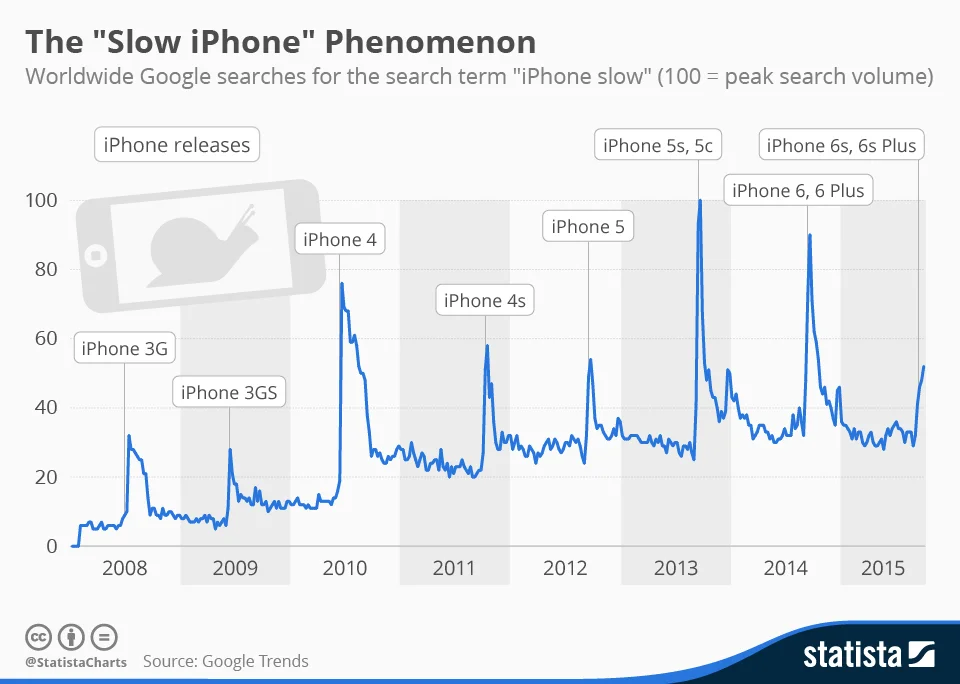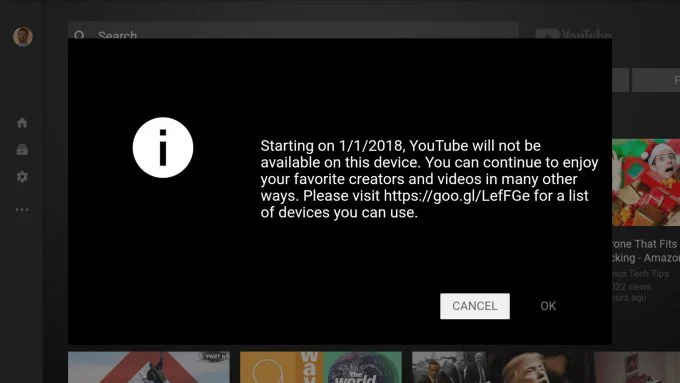mirror of
https://github.com/LBRYFoundation/lbry.com.git
synced 2025-09-20 10:09:07 +00:00
82 lines
No EOL
3.7 KiB
Markdown
82 lines
No EOL
3.7 KiB
Markdown
---
|
|
author: jeremy
|
|
title: 'Every Major Internet Company Hates You (Protocols Not Platforms Pt. 1)'
|
|
date: '2019-01-01 00:00:00'
|
|
---
|
|
Every major internet proactively _damages_ user experience to serve their own interests.
|
|
|
|
In a competitive economy, this is exceedingly unusual. But we'll discuss the why later. First, let's define the problem.
|
|
|
|
## The Problem
|
|
|
|
Claim: All of the largest consumer internet company actively spend their time and resources engineering degradations in user-experience.
|
|
|
|
Below are examples from Facebook, Amazon, Apple, Reddit, and YouTube.
|
|
|
|
This is not meant to be an exhaustive list of user hostility, but instead to provide an unambiguous example for each.
|
|
|
|
### Facebook
|
|
|
|
Facebook had (has!) a fully working, web-based version of their messaging platform.
|
|
|
|
They actively disabled on mobile to force more downloads of the app.
|
|
|
|

|
|
|
|
### Apple
|
|
|
|
We could talk at length about Apple's hostility towards free software and the ability for users to own and control their own devices.
|
|
|
|
But let's look at the most unambiguous example possible: Apple _actively slows down_ old phones to encourage more sales!
|
|
|
|

|
|
|
|
See [this](http://www.businessinsider.com/apple-battery-throttling-gives-customers-reason-to-distrust-2017-12) for the full details on this story.
|
|
|
|
### Reddit
|
|
|
|
Evidently, Reddit _really_ wants people to use their mobile app.
|
|
|
|
It current takes five clicks to view a GIF hosted on a non-Reddit site on mobile. It used to take one.
|
|
|
|

|
|
|
|
Not because there is anything wrong with the web experience, of course. But forcing people onto mobile means Reddit can collect a lot more information about you.
|
|
|
|
### YouTube
|
|
|
|
We could talk a lot about how YouTube's treatment of creators, as well as it's pro-censorship policies, constitute hostility.
|
|
|
|
But here's an even clearer example:
|
|
|
|

|
|
|
|
YouTube recently disabled all FireTV users from accessing YouTube for no reason other than to get back at Amazon.
|
|
|
|
## How Unusual This Is
|
|
|
|
Some people may read these examples and shrug. Companies are greedy. Is it really surprising they treat users this way?
|
|
|
|
And this response is partially right. Companies _are_ greedy.
|
|
|
|
But in a competitive economy, greed is typically satisfied by making your services _better_, not _worse_. When the local pizzaria offers free water, free bathrooms, clean tables, and sale prices, it does this not out avarice, not benevolence!
|
|
|
|
So the question becomes: why is this possible? Why are large tech companies able to get away with such abusive behavior?
|
|
|
|
And the answer is these platforms are not nearly as competitive as restaurants.
|
|
|
|
If the pizza place jacks up prices, I go to another pizza place. When Facebook treats me like crap, I complain about it... on Facebook.
|
|
|
|
But not all of our tech experiences are like this!
|
|
|
|
If we look at other aspects of the internet, it's much more like restaurants than Facebook. And that's because a lot of the tech driving the web is a protocol, not a platform.
|
|
|
|
My browser cannot treat me like crap, because HTTP is an open standard. Anyone else can make a browser, like anyone else can make a restaurant.
|
|
|
|
The same is true for my email client or my BitTorrent client.
|
|
|
|
The solution to this problem is to build protocols, not platforms.
|
|
|
|
When we build protocols, people can leave. When we build protocols, it's the users, not the middlemen, who retain control.
|
|
|
|
The innovation of blockchain is the most powerful development in over a decade in making this possible. We'll talk about this more in [Part 2](https://lbry.io/news/protocols-not-platforms-pt2). |